Digital Fluoroscopy Exams
Barium Enema
Please follow the preparations below, prior to undergoing the enema:
- Obtain the Fleet Barium Enema (BE) prep kit #1 from Capitol Imaging Services or your referring physician’s office at least one day prior to your exam. Be sure you allow enough time to complete 24-hour or 18-hour prep. The prep kits are available at our office at no cost.
- Carefully and completely follow the instructions in the kit for a 24-hour prep. If time does not permit, you may follow the 18-hour prep, however, the 24-hour prep is recommended.
- Do not eat solid food for 24 hours leading up to the exam.
- You may have sips of water and your regular medication the morning of the test, if no other test is scheduled.
Upper Gastrointestinal (Upper GI), Barium Swallow (Esophogram) or Small Bowel Follow Through
The necessary preparations are:
- Starting at midnight the night before your exam, do not eat or drink anything.
- For three days prior to your exam, do not schedule any other barium exams.
Intravenous Pyelogram
- The night before your exam, take two ounces of milk of magnesia after supper.
- Do not eat for three hours prior to your exam.
- Sips of water are allowed, along with your regular medications.
- If you are scheduled for an afternoon exam, a clear liquid breakfast is permitted.
Urography
- Metal objects including jewelry, eyeglasses, dentures and hairpins may affect CT images and should be left at home or removed prior to your exam.
- You may also be asked to remove hearing aids and removable dental work.
- Women will be asked to remove bras containing metal underwire.
- In order to distend your urinary bladder, you may be asked to drink water prior to the examination, and also not to urinate until after the scan is complete. However, guidelines about eating and drinking before a CT exam vary with the specific exam and also with the facility.
- You should inform your physician of any medications you are taking and if you have any allergies. If you have a known allergy to contrast material, or “dye,” inform your doctor. Based on your allergic history, your doctor may decide to provide medications to reduce the risk of allergic reaction or decide to cancel your exam.
- Inform your doctor of any recent illnesses or other medical conditions, and if you have a history of heart disease (particularly congestive heart failure or hypertension), asthma, diabetes, kidney disease, prior organ transplantation, use of chronic nonsteroidal anti-inflammatory drugs (NSAIDS) (e.g., Motrin), anti-rejection medication or certain antibiotics. Any of these conditions or medications may increase the risk of an unusual adverse effect following the administration of contrast for CT urography.
Hysterosalpingogram (HSG)
A hysterosalpingogram is performed between the 7th and 10th day of the patient’s menstrual cycle. Day one is the day menstruation begins.
- This procedure should not be performed if you have an active inflammatory condition. You should notify your physician or technologist if you have a chronic pelvic infection or an untreated sexually transmitted disease at the time of the procedure.
- You should inform your physician of any medications you are taking and if you have any allergies, especially to barium or iodinated contrast materials. Also inform your doctor about recent illnesses or other medical conditions.
Women should always inform their physician and x-ray technologist if there is any possibility that they are pregnant.

